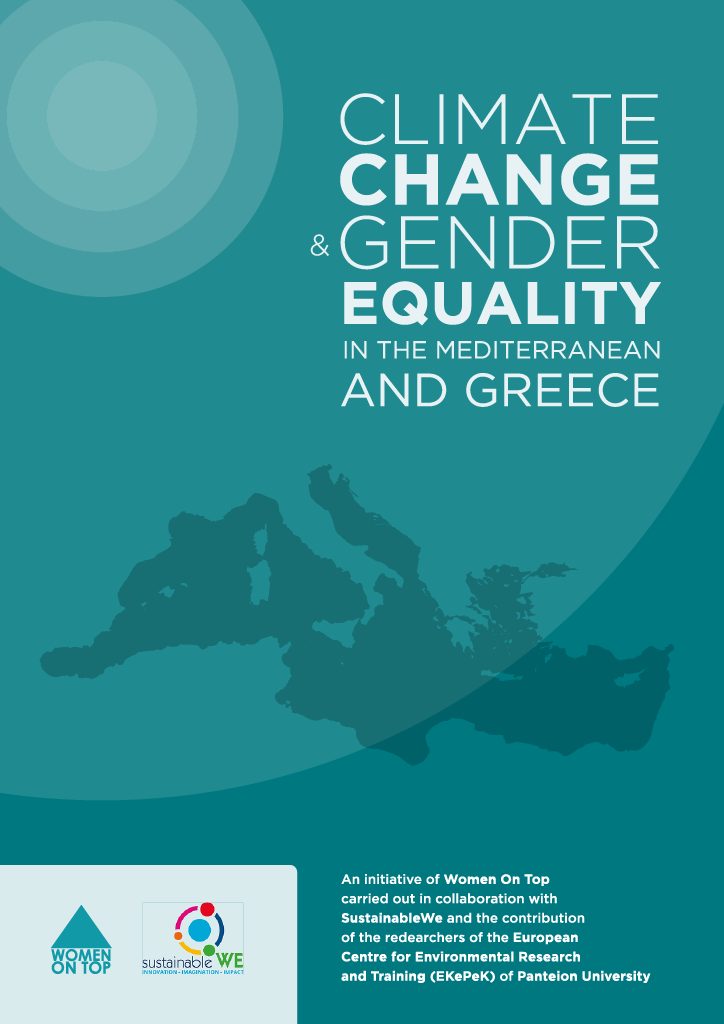
The report with the results of the first part of the research "Climate change and gender equality in the Mediterranean and Greece" is an initiative of Women On Top that was implemented in collaboration with SUSTAINABLEWE and the assistance of researchers from the EKePek of Panteion University.
The research attempts to shed light on the interaction of climate change and gender equality, based on data that show that women, like other vulnerable social groups, are more adversely affected by the phenomenon in many areas of daily life, both in cities and in the countryside, but they participate less than necessary in the strategies and actions to deal with it.
From the literature review that formed the basis of the first part of the research, it appears that the worsening of inequalities for women, due to climate change, becomes evident in the agricultural and tourism sectors, but also during their exposure to extreme weather events and natural disasters, which women are - mainly for social reasons - less prepared to face.
The living of women during these major disasters becomes more difficult due to the poverty they more often face, but also due to the increase in the phenomena of gender-based violence that occurs during these periods. These challenges, in fact, do not only concern women in developing countries, but also in several regions of developed countries, as of course in Greece. According to data shared by Dr. Z. Dimadama, Lecturer (EDIP) at the Department of International, European and Regional Studies and Scientific Associate of EKPEK, during the presentation of the report in the Inclusivity Lounge of Women On Top, in the context of the Delphi Economic Forum 2022, despite the limited data available to us, the devastation caused by the fires in Mati and Evia, in recent years, seems to have affected to a greater extent the women and girls of these areas.
Coupled with the difficulty of maintaining energy security, securing potable water and the widening gender digital divide, the issues raised by this report highlight the importance of combating stereotypes and prejudices that hinder women's empowerment, which will allow themselves to become valuable factors in managing and dealing with climate change holding a substantial participation in decision-making.
In the second part of the research, which was published in April 2023 and aims to contribute to filling the data gap observed in our country but also internationally, the exact effects of the climate crisis on the daily life and perspectives of women are investigated quantitatively and qualitatively in Greece, and specific solutions are proposed to address these challenges but also to integrate the perspective of gender in every initiative and policy aimed at climate adaptability and sustainable development.

